International
Washington and London leave in the air the authorization to use their missiles against Russia
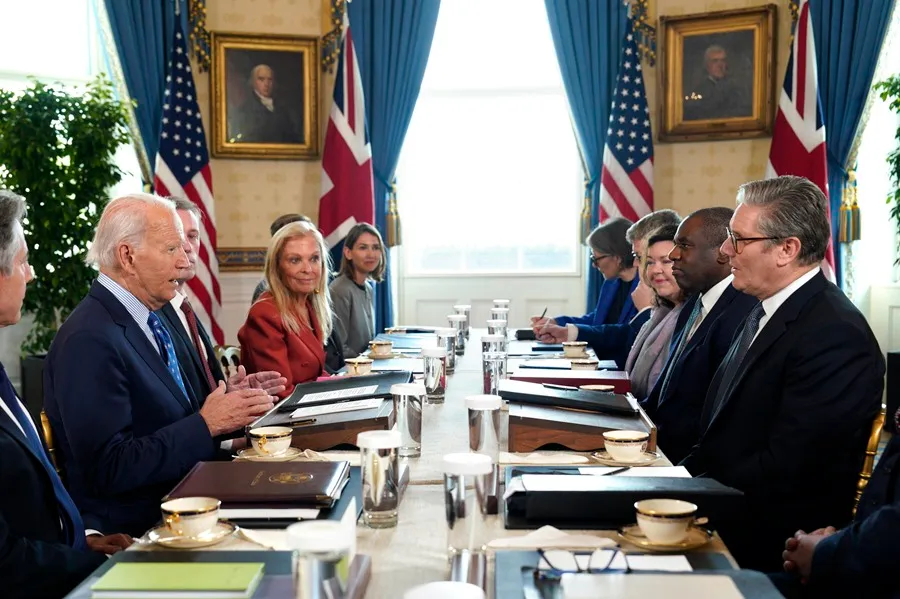
The President of the United States, Joe Biden, and the British Prime Minister, Keir Starmer, reaffirmed their support for Ukraine this Friday, but left Kiev on embers by not announcing a decision on their request to authorize the use of long-range missiles against Russian territory.
Expectations were high around the meeting between the two leaders, although in the end the announcement that Kiev was waiting for was not made.
New debate at United Nations
In statements to the press after the meeting, Starmer said that discussions will continue with a “wider group of individuals” during the week of high-level meetings of the United Nations General Assembly in New York, to be held later this month.
“This meeting was not to make a concrete decision,” stressed Starmer, who defended Ukraine’s right to defend itself and assured that NATO will continue to support Ukraine.
The issue of the missiles did not appear either in the final statement of the meeting, in which both parties “reaffirmed their unwavering support for Ukraine while continuing to defend itself against Russia’s aggression,” nor in the statements that both leaders offered before the meeting to the media.
At that time, Biden was the first to take the floor to thank Starmer for the “leadership” that the United Kingdom has shown in the war in Ukraine and reiterated that Washington is “committed” to helping Ukraine in its defense of “Russian aggression.”
For his part, Starmer expressed his support for Ukraine in “this vital war for freedom” and said that the coming months will be “very important” for the course of the conflict.
US conditions
Hours before the meeting, Ukrainian President Volodymyr Zelensky had insisted again that Ukraine needs to attack military targets located within the Russian Federation to change the course of the war in its favor.
In addition to Ukraine, other allies on NATO’s east flank, such as Poland, want the US leader to allow Kiev to use long-range missiles to attack military targets within Russia, and Biden has been open to making some changes in the policy he has maintained so far.
The question is how far Biden will go and when he could announce a change.
So far, the Biden Government’s policy has been to support Ukraine and, since the beginning of the conflict, it has given it more than 55 billion dollars in weapons, but it has set conditions on how Kiev should use the weapons that the US delivers or that are made with American components to avoid an escalation with Russia.
Those restrictions, however, have been relaxed over time on some occasions. They are maintained in long-range missiles, but in May Biden authorized Kiev for the first time to carry out attacks on Russian territory, specifically to defend the then besieged city of Kharkiv (northeast of the country).
Putin’s warnings
A possible measure that Biden could take is to authorize Ukraine’s use of British Storm Shadow missiles to attack targets outside its territory. The United Kingdom and Ukraine would need the approval of the US president, since some components of these missiles are manufactured in the United States.
Kiev also wants authorization to use the US long-range missiles ATACMS against Russia, which Washington has already sent to Ukraine. However, White House spokesman John Kirby already warned this Friday at a press conference that Biden was not going to announce any change in US policy for the moment.
“There are no changes in our vision on the provision of long-range attack capabilities for Ukraine to use within Russia. I wouldn’t expect any important announcement about it,” he said.
One of the biggest fears in the United States remains an escalation with Russia. This week, Russian President Vladimir Putin warned that if Ukraine is authorized to use long-range missiles to hit targets on Russian territory, it would imply that NATO members, the United States and European countries would be at war with Russia.
International
Death toll from southern Spain train crash rises to 40
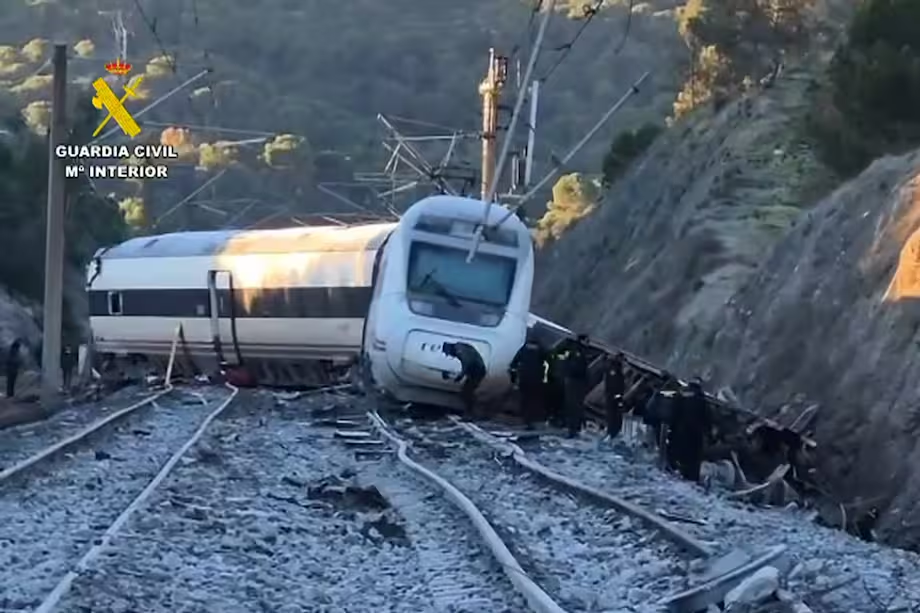
The death toll from the train accident that occurred on Sunday in southern Spain has risen to 40, according to investigative sources cited by EFE on Monday afternoon.
Since early Monday, search operations have focused on the damaged carriages of a Renfe train bound for Huelva, which collided with the last derailed cars of an Iryo train traveling from Málaga to Madrid after it left the tracks.
The crash has also left more than 150 people injured. Of these, 41 remain hospitalized, including 12 in intensive care units at hospitals across the Andalusia region.
More than 220 Civil Guard officers are working at the site, searching the railway line and surrounding areas for key evidence to help identify victims and determine the causes of the accident.
The tragedy has revived memories of the deadliest railway disasters in Europe in recent decades. In Spain, the most severe occurred on July 24, 2013, when an Alvia train derailed near Santiago de Compostela, killing 80 people and injuring 130 others.
At the European level, the worst rail disaster took place on June 3, 1998, in Eschede, northern Germany, when a high-speed train struck a bridge pillar at 200 kilometers per hour, resulting in 98 deaths and 120 injuries.
International
Spain’s Prime Minister pledges transparency after train crash kills at least 39
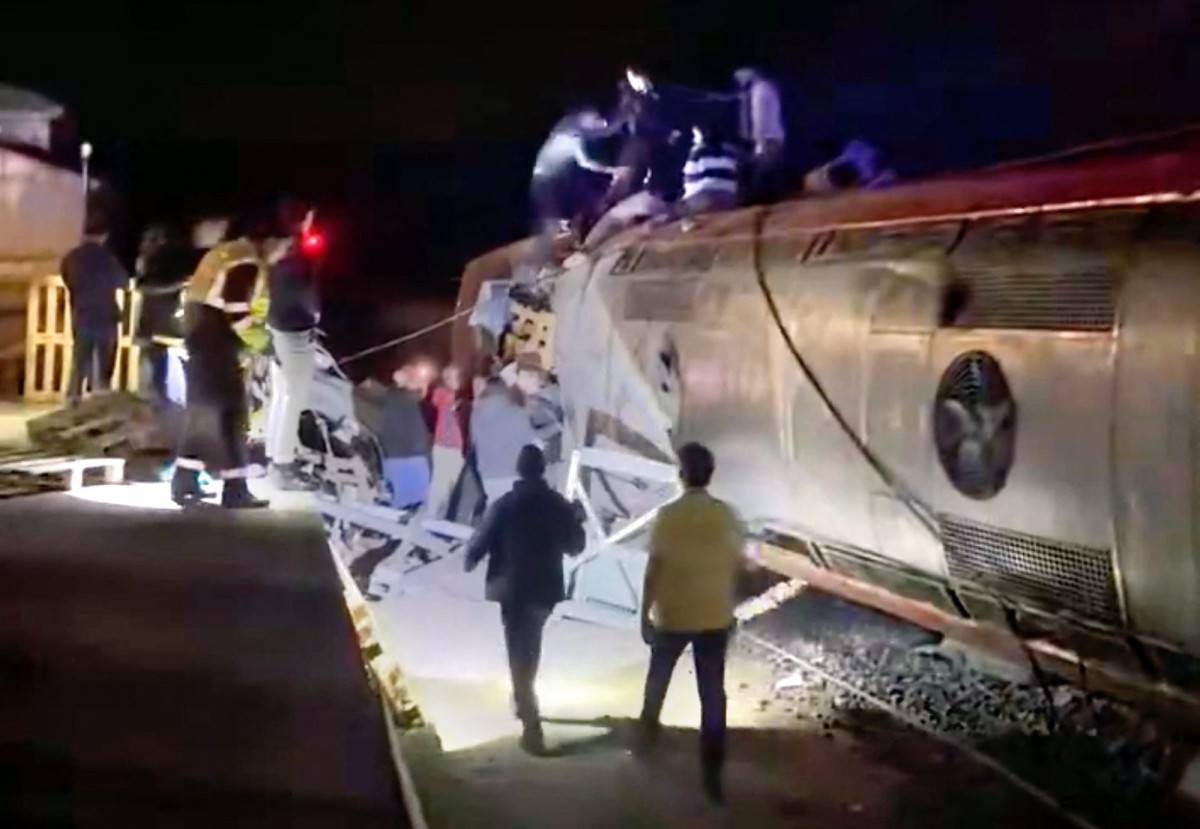
Spanish Prime Minister Pedro Sánchez pledged on Monday to ensure “absolute transparency” regarding the causes of a train crash that killed at least 39 people on Sunday in southern Spain, warning that the death toll could still rise.
The fatal accident occurred in the Andalusia region, where the number of confirmed deaths reached 39 by Monday morning, according to a spokesperson for the Ministry of the Interior.
Authorities were preparing to deploy heavy machinery to lift several derailed train cars. “We are waiting for cranes to be installed this morning to lift cars one, two and three of the Alvia train, which suffered the most damage,” said Andalusian regional president Juanma Moreno Bonilla on regional television. “It is likely that once they are lifted, we may find more victims,” he added.
The disaster also left more than 120 people injured. As of Monday afternoon, 43 victims remained hospitalized, including 12 in intensive care, according to emergency services.
International
Over 160 christian worshippers kidnapped in Kaduna Church attacks

More than 160 Christian worshippers were abducted on Sunday during coordinated attacks carried out by armed gangs on two churches in a remote village in Kaduna State, northern Nigeria, according to a cleric and a United Nations report accessed by AFP on Monday.
Nigeria, Africa’s most populous nation, has witnessed a renewed surge in mass kidnappings since November, prompting the United States government to carry out military strikes on Christmas Day in the northwestern state of Sokoto.
U.S. President Donald Trump accused Nigerian armed groups of targeting Christians, describing the violence as a form of “genocide” against the religious community.
According to Reverend Joseph Hayab, president of the Christian Association of Nigeria in the north, the attackers arrived in large numbers, blocked access to the churches, and forced worshippers to flee into nearby forests.
“The attackers came in large numbers, sealed off the entrances to the churches, and drove the faithful into the bush,” Hayab told AFP.
-

 International2 days ago
International2 days agoU.S. deportation flight returns venezuelans to Caracas after Maduro’s ouster
-

 International4 days ago
International4 days agoUkraine declares nationwide energy emergency amid russian attacks and extreme cold
-
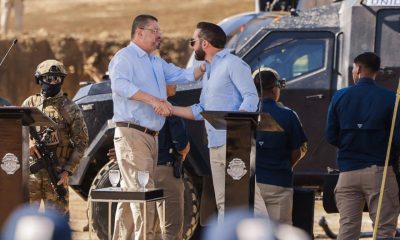
 Central America5 days ago
Central America5 days agoBukele warns crime can become a ‘parallel government’ during visit to Costa Rica
-

 International4 days ago
International4 days agoX moves to block Grok from creating sexualized images of real people amid legal scrutiny
-

 International4 days ago
International4 days agoIran closes airspace amid U.S. threats and deadly nationwide protests
-

 International4 days ago
International4 days agoHillary Clinton skips Epstein inquiry as house panel threatens contempt charges
-

 International4 days ago
International4 days agoFrance joins Denmark’s ‘Operation Arctic Resistance’ in Greenland amid U.S. tensions
-

 Central America1 day ago
Central America1 day agoGuatemala prison uprisings leave 46 guards held by gangs
-
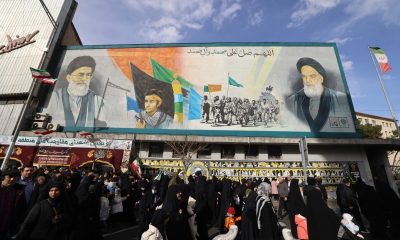
 International3 days ago
International3 days agoCanada accuses Iran of killing its citizen during anti-government unrest
-

 International4 days ago
International4 days agoU.S.–Denmark tensions escalate as Trump pushes NATO to back U.S. claim on Greenland
-
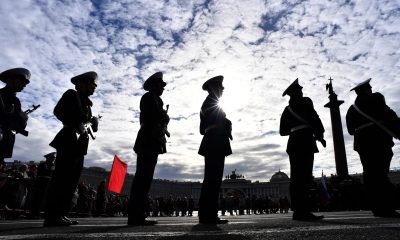
 International4 days ago
International4 days agoUK Intelligence estimates russian casualties in Ukraine at over 1.2 million
-
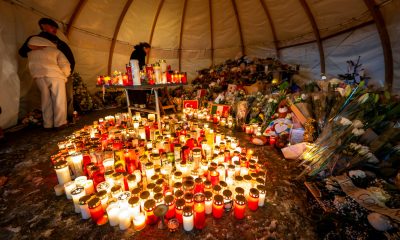
 International4 days ago
International4 days agoSwiss Canton of Valais Grants Emergency Aid to Victims of Crans-Montana Bar Tragedy
-

 International3 days ago
International3 days agoSheinbaum highlights anti-drug gains after U.S. says challenges remain
-

 International5 days ago
International5 days agoU.S. to suspend visa processing for applicants from 75 countries
-

 International1 day ago
International1 day agoChile declares state of catastrophe as wildfires rage in Ñuble and Biobío
-

 International2 days ago
International2 days agoFormer South Korean President Yoon sentenced to five years in prison
-

 International3 hours ago
International3 hours agoDeath toll from southern Spain train crash rises to 40
-

 Central America3 hours ago
Central America3 hours agoGuatemala raises police death toll to nine after gang violence escalates
-

 International3 hours ago
International3 hours agoOver 160 christian worshippers kidnapped in Kaduna Church attacks
-

 International3 hours ago
International3 hours agoSpain’s Prime Minister pledges transparency after train crash kills at least 39


























